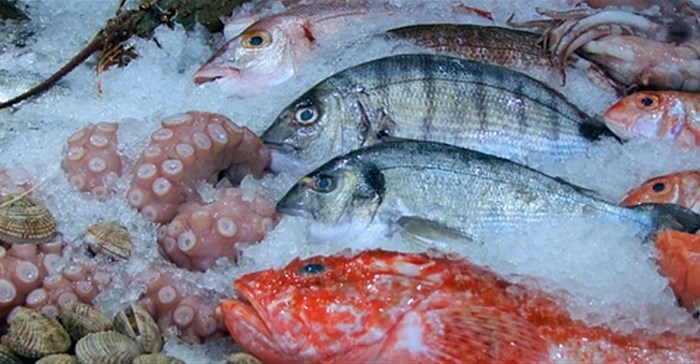
In the news
Fish is good, in small doses

As little as one portion of swordfish a month could lead to mercury consumption above recommended levels, as could more than three meals of kingklip or Cape salmon, according to the Council for Scientific and Industrial Research.
But the good news is researchers agree that fish remains one of the best sources of high-quality protein. "People must not stop eating fish - it is really important in our diet," said lead researcher Brent Newman, whose team measured mercury in almost 200 samples. "This research is mainly about giving people advice."
Potentially dangerous fish
The study looked specifically at mercury occurring naturally in fish tissue, which may also be elevated due to the effect of human pollution. Too much mercury can be harmful, particularly to infants and pregnant women.
Researchers planned to continue the study and widen it to look at popular items such as fish fingers, Newman said. The aim was to raise awareness about the benefits and potential dangers of local fish. "It's the first time we are really understanding mercury concentrations in sea fish here in the country," he said. Previous studies had looked at fish not widely consumed, such as those in Durban harbour.
"For this study we are targeting the general consumer who probably doesn't eat huge amounts of fish," Newman said, adding that mercury levels were "not at levels we are panicking about". However, as a precaution, it was recommended that pregnant women, infants and children should avoid eating swordfish "and possibly also kingklip, tuna steaks and Cape salmon". Canned tuna is not regarded as hazardous.
Newman said it was impossible to say to what extent the mercury in the fish was due to human contamination, although he suspected the effect was negligible. "The concentration of mercury in our coastal waters is pretty low, but inland there are areas where mercury is a concern," he said.
Advisory cards
Researchers have used their findings to compile an advisory card with recommended monthly meal quotas for each species based on an average 227g portion. Swordfish is by far the most mercury-heavy fish - fewer than one meal a month recommended - followed by Cape salmon, yellowfin tuna and kingklip - two or three meals a month.
Several species were pegged at between four and eight meals a month, including dorado, kabeljou, steenbras, red roman and hake.
Correct labeling
Jeremy Marillier, from fishing industry body Fish SA, recommended a public discussion about how to convey information to consumers, including the use of labels.
Ina Wilken, vice-chairman of the SA National Consumer Union, said: "The correct labelling of products is of utmost importance."
Source: The Times
Source: I-Net Bridge

For more than two decades, I-Net Bridge has been one of South Africa’s preferred electronic providers of innovative solutions, data of the highest calibre, reliable platforms and excellent supporting systems. Our products include workstations, web applications and data feeds packaged with in-depth news and powerful analytical tools empowering clients to make meaningful decisions.
We pride ourselves on our wide variety of in-house skills, encompassing multiple platforms and applications. These skills enable us to not only function as a first class facility, but also design, implement and support all our client needs at a level that confirms I-Net Bridge a leader in its field.
Go to: http://www.inet.co.zaRelated
Circular economy takes centre stage with new eco-friendly housing initiative in South Africa 23 Apr 2025 New CSIR app to tackle literacy challenge in children 30 Jan 2025 Marketers say goodbye to cookies, hello to first-party data 19 Apr 2024 Public Sector Leaders features the merSETA CFO, Ncedisa Mpande 2 Apr 2024










